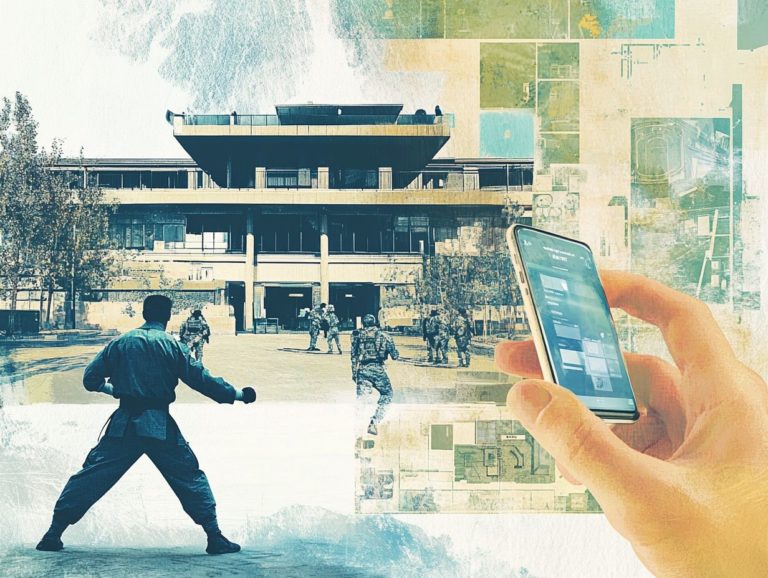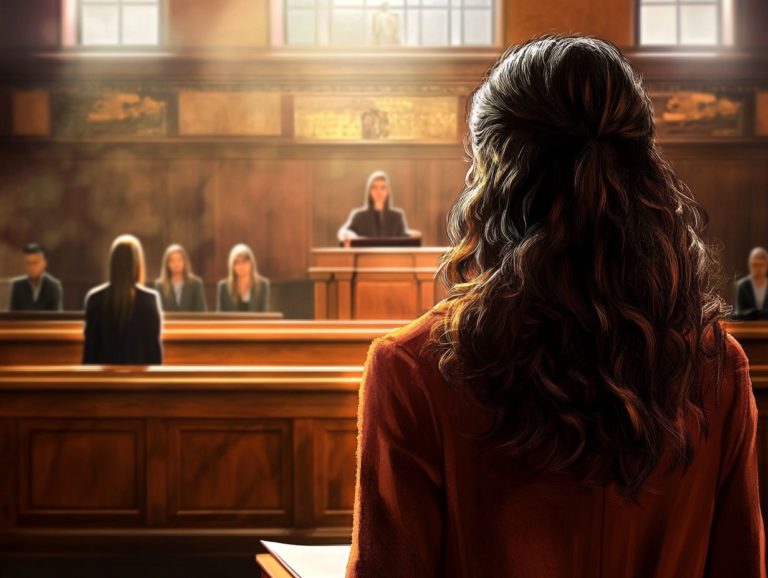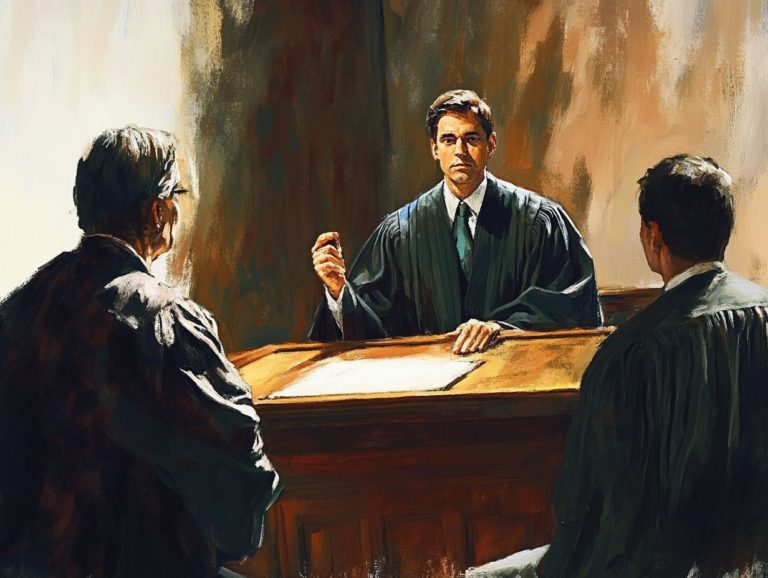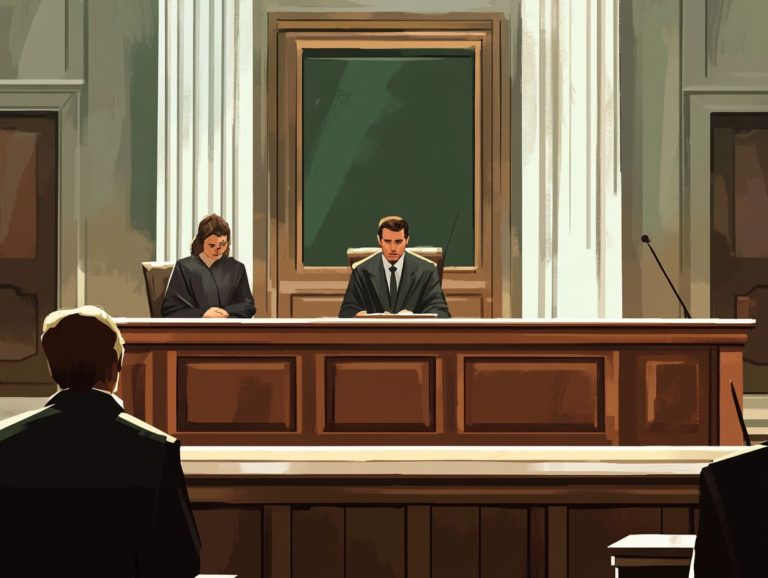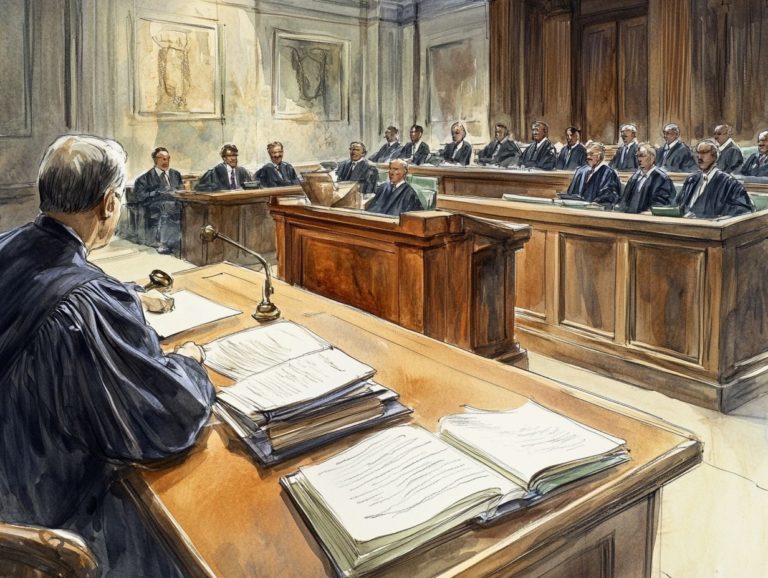How to Challenge Evidence in Your Defense
When you face legal challenges, understanding the details of effectively disputing evidence can make all the difference in crafting a solid defense.
This article explores the types of evidence commonly presented in court and examines various strategies for contesting them. It outlines the grounds for challenging evidence and offers guidance on gathering and presenting contradictory information. Additionally, it emphasizes the crucial role your attorney plays in this process.
You’ll find a spotlight on common pitfalls to avoid, ensuring you are equipped with a comprehensive defense strategy. Let s dive into the types of evidence you might face in court!
Contents
- Key Takeaways:
- Understanding Evidence in Your Defense
- Challenging Evidence in Your Defense
- Gathering and Presenting Contradictory Evidence
- Working with an Attorney to Challenge Evidence
- Common Mistakes to Avoid when Challenging Evidence
- Frequently Asked Questions
- What is the first step in challenging evidence in my defense?
- How do I know if the evidence is admissible in court?
- Can I challenge witness testimony?
- What if the evidence was obtained through an illegal search or seizure?
- Can I challenge physical evidence?
- What if there is no evidence to support my defense?
Key Takeaways:
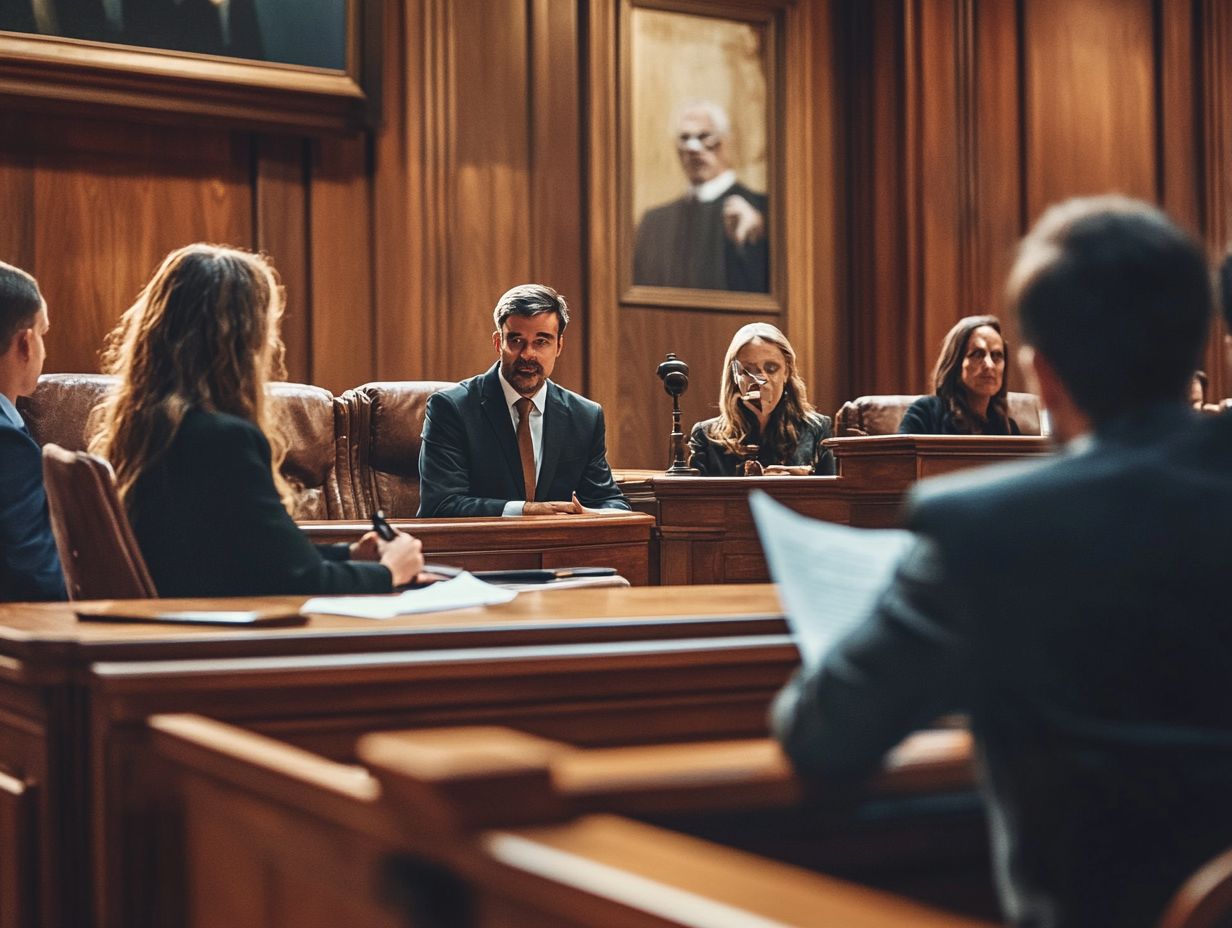
Know the types of evidence used in court. Challenge them effectively to strengthen your defense. Possible grounds for challenging evidence include lack of relevance, improper collection or handling, and credibility issues. Gathering and presenting contradictory evidence can effectively dispute the prosecution’s claims.
Understanding Evidence in Your Defense
Knowing how evidence impacts your defense is essential when navigating a criminal case, especially in jurisdictions like Raleigh, North Carolina.
Evidence comes in many forms physical items, witness statements, or findings from forensic experts all fundamental to constructing a strong defense strategy.
Your trial tactics will largely depend on how effectively you can leverage this evidence to establish reasonable doubt and uphold the principle of innocence.
Whether you re dealing with police reports or expert testimony, mastering the details of evidence is critical for achieving a favorable outcome.
Types of Evidence Used in Court
In a criminal trial, various types of evidence are crucial. These include physical evidence, witness statements, and expert testimony from forensic specialists. Each type plays a vital role in supporting the charges against the accused.
Physical evidence, like fingerprints or DNA samples, provides concrete connections to the crime. Witness statements offer unique insights into the sequence of events, often swaying juror perceptions.
Demonstrative evidence such as charts or models makes complex information easier to understand.
Each category of evidence stands out for its significance and weaves together dynamically in the courtroom. Forensic experts translate physical findings into digestible data, crafting a cohesive narrative that strengthens either the prosecution s or the defense s case.
Challenging Evidence in Your Defense
Challenging evidence is essential to any defense strategy, as it can uncover legal violations or inconsistencies in the chain of custody, weakening the prosecution’s case against you.
By questioning the validity of the evidence, you can instill reasonable doubt in the minds of the jury a crucial factor in criminal trials.
Possible Grounds for Challenging Evidence

Several grounds exist for challenging evidence in a criminal case. These include questioning the chain of custody, identifying potential legal violations, and assessing the reliability of expert testimony. Each avenue allows you to create reasonable doubt in the minds of jurors.
Consider how physical evidence was handled or stored; discrepancies can significantly undermine its integrity, raising concerns about contamination or tampering. If law enforcement procedures were conducted unlawfully, it can cast serious doubt on the legitimacy of the collected evidence.
It is essential to scrutinize the qualifications and methodologies of any experts involved. Flawed or biased testimony can mislead jurors, altering their perceptions and affecting their verdict.
All these factors combine to challenge the overall reliability of the evidence, highlighting the importance of thorough examination in the courtroom.
In conclusion, understanding and challenging evidence in a criminal defense is crucial. Being well-prepared can make a significant difference in achieving a favorable outcome.
Gathering and Presenting Contradictory Evidence
Gathering and presenting contradictory evidence is essential to your defense strategy. It effectively counters the prosecution’s narrative and can play a crucial role during closing arguments.
This evidence can include inconsistencies in witness statements or new information that questions the reliability of the prosecution’s case.
Effective Strategies for Disputing Evidence
Effective strategies for disputing evidence are vital in a criminal trial. They allow you to challenge the prosecution’s claims while establishing reasonable doubt.
These strategies involve a careful method of cross-examination. You can spotlight inconsistencies in witness testimonies and reveal any biases that might compromise their credibility.
By posing incisive questions, you can clarify the reliability of the prosecution’s evidence. Presenting counter-evidence builds a stronger argument against the claims made against you.
Each tactic undermines the prosecution’s case and aligns with a broader defense strategy aimed at ensuring justice is served.
Working with an Attorney to Challenge Evidence
Collaborating closely with a criminal defense lawyer is crucial when confronting evidence in a criminal case. An experienced attorney can spot legal issues and navigate the rules of evidence with ease.
Role of an Attorney in Evidence Challenges
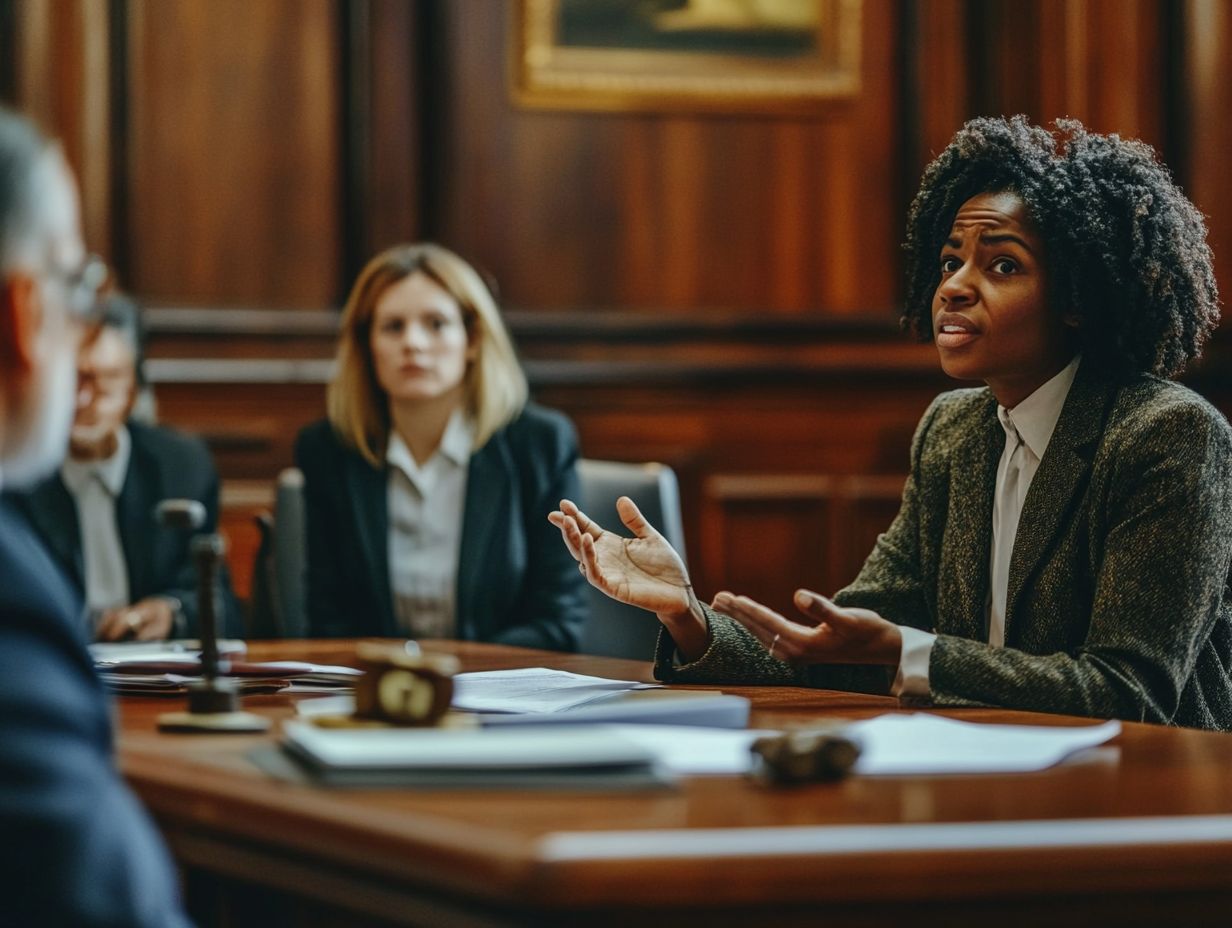
The role of a criminal defense lawyer in navigating evidence challenges is complex. It involves everything from jury selection to developing trial tactics while ensuring the evidence meets legal standards.
You must also carefully evaluate the admissibility of evidence, examining its collection and handling to uncover potential violations of your rights. Selecting an impartial jury is just as important.
Effective trial tactics include using expert witnesses to cast doubt on the prosecution’s claims. Persuasive storytelling can help present your narrative in a compelling way.
By carefully crafting these elements, you influence the trial’s dynamics and potential outcomes significantly.
Common Mistakes to Avoid when Challenging Evidence
Avoiding common mistakes when challenging evidence is essential for a successful defense. Missteps can undermine your case and weaken the establishment of reasonable doubt in the jury’s mind.
Prioritizing precision and clarity in your approach will enhance your effectiveness in court.
Tips for a Strong Defense Strategy
Developing a robust defense strategy requires careful attention to evidence. You should aim to instill reasonable doubt while considering plea deals as a practical option.
Start by gathering and analyzing all available evidence meticulously, including eyewitness accounts, forensic reports, and alibi details.
A skilled defense attorney will frame this information to challenge the prosecution s credibility. Even the slightest inconsistency can plant a seed of doubt in the jurors’ minds.
Navigating the balance between going to trial and negotiating a plea deal requires careful consideration of your case’s strengths and weaknesses.
Understanding the risks of a severe sentence versus the benefits of accepting a reduced charge can lead to a more favorable outcome.
Frequently Asked Questions
What is the first step in challenging evidence in my defense?
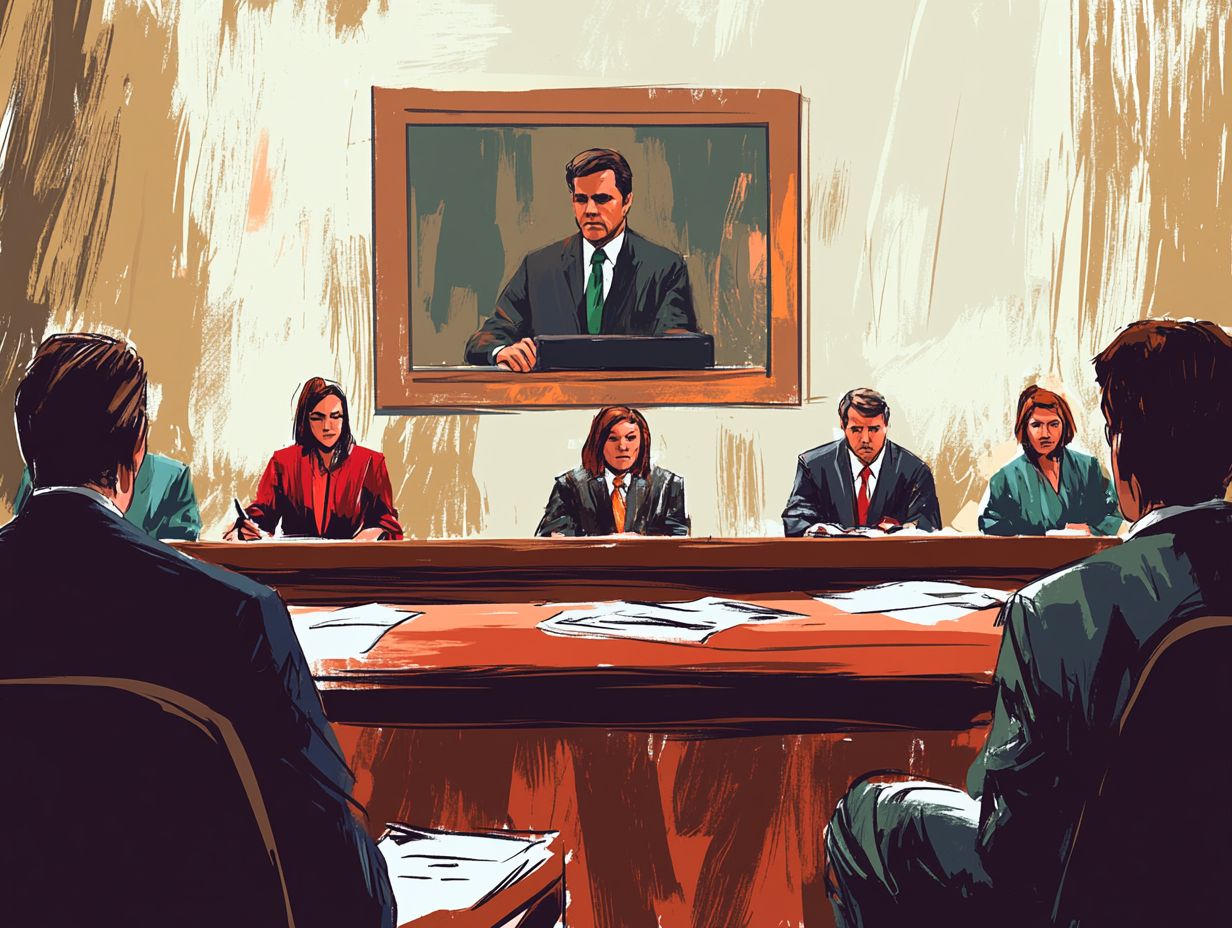
The first step is to thoroughly review all the evidence presented against you, including police reports, witness statements, and physical evidence.
How do I know if the evidence is admissible in court?
Evidence must meet certain legal criteria to be allowed in court. It must be relevant to the case and obtained legally. It also should not be unfairly prejudicial.
You should consult with a lawyer to determine if specific evidence applies to your case.
Can I challenge witness testimony?
Yes, you can challenge witness testimony in court. This can be done by cross-examining the witness and highlighting any inconsistencies or biases in their statements.
You can also present your own evidence or witnesses to contradict what the witness has said.
What if the evidence was obtained through an illegal search or seizure?
If evidence was obtained through an illegal search or seizure, it may not be allowed in court. The Fourth Amendment protects individuals from unreasonable searches and seizures by the government.
You should consult with a lawyer to see if this applies to your case.
Can I challenge physical evidence?
Yes, you can challenge physical evidence in court. This can involve questioning the chain of custody, which refers to the process of maintaining and documenting the handling of evidence.
You may also challenge the accuracy or reliability of tests or techniques used to analyze the evidence.
What if there is no evidence to support my defense?
If no evidence supports your defense, you may need to rely on other strategies. Focus on attacking the credibility of the prosecution’s evidence or presenting mitigating circumstances.
Don’t wait! Work closely with a lawyer to build your strongest defense.

